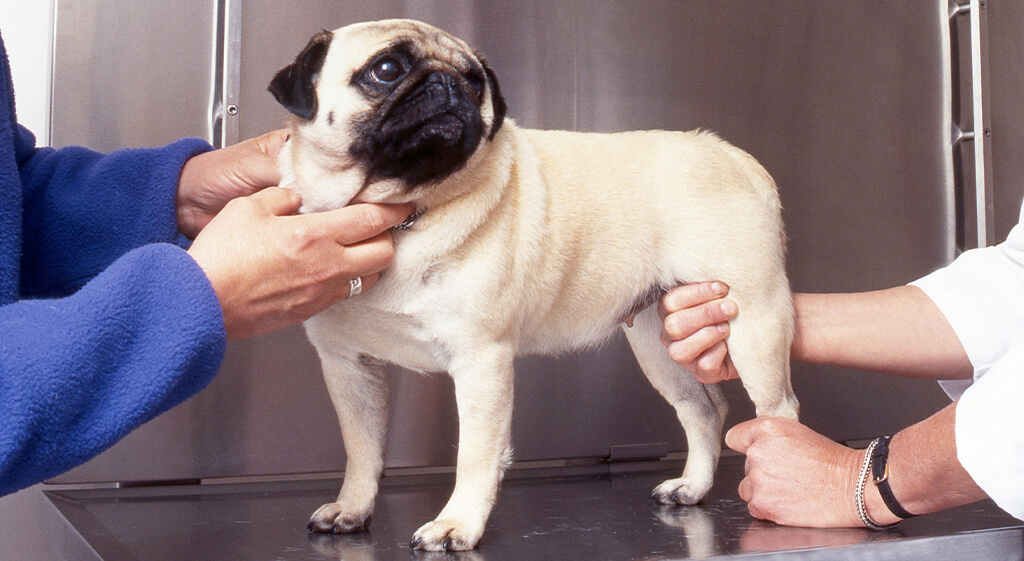Canine hip dysplasia is a common condition, especially in larger dog breeds, that can lead to discomfort and reduced mobility. Understanding how to manage this condition is key to maintaining your dog’s quality of life. Today we’ll explore what canine hip dysplasia is, how to recognize it, and ways to manage the discomfort while promoting mobility. If your dog is showing signs of hip trouble, or if you have concerns about hip dysplasia, Broomfield Veterinary Hospital in Broomfield, CO, is here to help. You can reach out to us at (303) 466-1764 for expert advice and care.
Understanding Canine Hip Dysplasia
Canine hip dysplasia is a condition where the hip joint doesn’t develop properly. This misalignment can lead to pain and arthritis over time. It’s more common in larger breeds, but any dog can be affected.
Causes and Risk Factors
- Genetics: This condition is often inherited, so dogs with a family history of hip dysplasia are at a higher risk.
- Rapid Growth: Puppies that grow very quickly, particularly large breeds, might be more susceptible.
- Nutrition: Both overfeeding and underfeeding in puppyhood can impact joint health.
- Exercise: Too much or too little exercise during the developmental stage can influence the risk of developing hip dysplasia.
Recognizing the Signs of Hip Dysplasia
Catching hip dysplasia early can help manage the condition more effectively. Here are some signs to watch for:
- Difficulty Rising: Your dog may struggle to get up from a lying position.
- Limping or Lameness: A noticeable limp, especially after exercise, can be a sign.
- Decreased Activity: Your dog might become less active or hesitant to run, jump, or climb stairs.
- Change in Gait: A bunny-hopping gait is a common sign of hip dysplasia in dogs.
Managing Canine Hip Dysplasia
The first step in managing canine hip dysplasia is getting a proper diagnosis. Your vet may recommend x-rays to assess the hips’ condition. Regular check-ups are important to monitor the progression of the condition.
Pain Management
Your vet might suggest medications to help manage pain and inflammation. It’s important to follow their guidance on dosage and frequency.
Physical Therapy and Exercise
Controlled exercise and physical therapy can help maintain muscle strength and joint mobility. Swimming is a great low-impact exercise for dogs with hip dysplasia.
Weight Management
Keeping your dog at a healthy weight is crucial. Excess weight can put more strain on the hips, worsening the condition.
Supportive Care
Orthopedic beds, ramps, and harnesses can help make your dog more comfortable and support their mobility.
Promoting Mobility in Dogs with Hip Dysplasia
Not all exercise is good for dogs with hip dysplasia. It’s about finding the right balance and type of activity. Your vet can help create an exercise plan that’s gentle on your dog’s hips.
Home Environment
Making some changes at home can help your dog move around more easily. Ramps instead of stairs, non-slip mats, and easily accessible resting areas can make a big difference.
Joint Supplements
Supplements like glucosamine and chondroitin can support joint health. Always consult your vet before starting any supplements.
Broomfield Veterinary Hospital Support
How We Can Help
At Broomfield Veterinary Hospital, we understand the challenges of managing canine hip dysplasia. Our team is equipped to provide the care and support your dog needs, from diagnosis to treatment plans.
Scheduling an Appointment
If you suspect your dog has hip dysplasia, or if you need guidance on managing the condition, don’t hesitate to call us at (303) 466-1764. We’re here to help you and your dog every step of the way.





